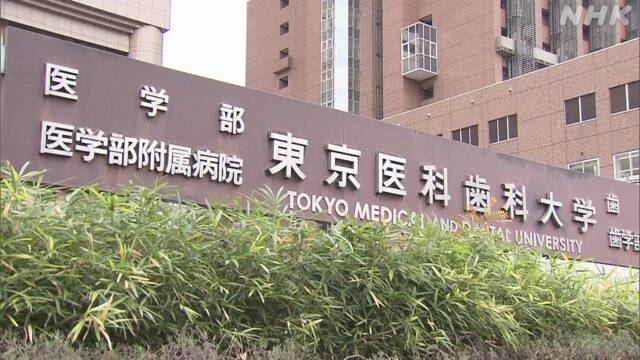It was found that a new type of mutated coronavirus, which is different from the one that spread in the United Kingdom and South Africa, was detected in one-third of the patients confirmed to be infected at Tokyo Medical and Dental University Hospital.
The research group says that the mutant virus may have replaced the conventional type, which has been pointed out as having the potential to reduce the effects of immunity and vaccines.
At Tokyo Medical and Dental University Hospital in Bunkyo-ku, Tokyo, all patients confirmed to be infected with the new coronavirus are tested for mutant virus.
According to the university, in the two months to the end of last month, a virus with a mutation called "E484K" that escaped antibody attacks was detected in 12 out of 36 patients who could be tested, which is one-third last month. It means that it was detected in 10 people, which is 71% of 14 people.
The 12 people detected were in their 20s to 80s living in Tokyo, had no history of traveling abroad, and had never been in contact with each other, so one asymptomatic person and one mildly ill were moderately ill. It means that there was only one person who was seriously ill.
On the other hand, viruses with mutations that enhance infectivity, such as the mutant virus that spread in the United Kingdom, which is becoming more common in Osaka and Hyogo prefectures, were not detected.
The research group suspects that in Tokyo, a different type of mutant virus from Kansai is replacing the conventional type of virus.
Professor Shuji Higashida of Tokyo Medical and Dental University, who conducted the survey, said, "It is said that it is a mutation that may affect the effect of the vaccine, so I thought it was important and investigated it. It seems that the sex is the same as the conventional type, but the fact that this number is detected may have already spread considerably in the city. It is necessary to expand the inspection system and grasp the accurate situation. ".
What is the "E484K" mutation?
"E484K" is one of the mutations of the new coronavirus, which means that the 484th amino acid of the "spike protein" amino acid has changed.
It is thought that this mutation has the property of escaping the attack of antibodies, and it has been pointed out that it may be easier to re-infect and the vaccine may be less effective.
It is known that the mutant virus confirmed in South Africa and the mutant virus spread in Brazil have this mutation in addition to the mutation called "N501Y" which is said to enhance infectivity.
This time, it is a mutant virus that does not have "N501Y" but has "E484K".
According to the National Institute of Infectious Diseases, two cases of the same virus were found in the quarantine at the airport by the 3rd of last month (March), and 394 cases were found in Japan. , The Keio University group reports that there were cases in which it appeared to have mutated in Japan.
The nature of this mutant virus is not yet known in detail, but so far no changes have been reported, such as significantly increased infectivity or increased symptoms.
In addition, the screening of mutant strains currently conducted in local governments nationwide is to find the mutation of "N501Y", and in order to find "E484K", it is necessary to analyze the genetic information in detail.
The National Institute of Infectious Diseases will continue to analyze and monitor the genetic information of this mutant virus to understand the actual situation.

